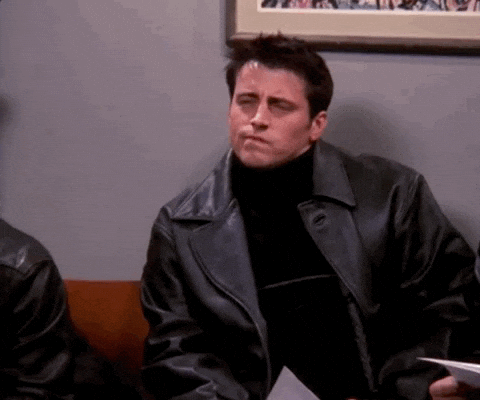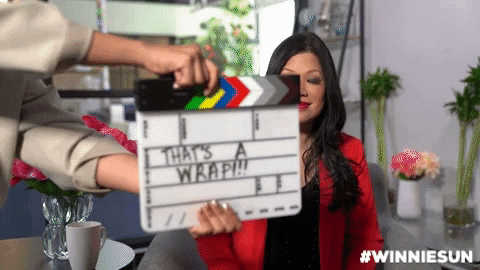Written by Top Commercial Casting Director, Barry Shapiro!
1) GET AS MUCH INFO AS POSSIBLE
Whether you got the audition from an agent or from online, read everything! Wardrobe is very important. It will help you be more believable in the role. If there's no information about wardrobe, wear clothes that are form fitting and that you feel most comfortable in. If you have a shirt or blouse you get complimented on use that. Also check out the age range, it will help you decide how to look for the audition. If it's a self tape, I suggest you do two takes to show your range unless the directions say not to. Also, with self tapes make sure you know where the camera is on your device.
2) BE ON TIME
And by on time I mean early. The time you are given is the time you should be expected to go in the room, not arrive. Even if you already have the script, you want to have time to go to the bathroom and generally prepare yourself. Also the script may have changed as well so you need that time to adjust. Traffic is not an acceptable excuse. It means you didn't leave early enough. Sometimes things out of control happen and you will be late. But be prepared to have missed the audition and don't complain or argue. You should just apologize and leave. When you walk in the casting room late you have already given a bad first impression. Also, don't get there too early. Sometimes people arrive an hour early and it crowds up the waiting room. Ten to twenty minutes early is perfect.
3) BE CAREFUL IN THE WAITING ROOM
Be respectful of the assistants helping out. No attitude! First they may be a future casting director and second, they will tell the casting director who was rude. Also be careful what you say to other actors about anything! Everyone is watching everyone. It is not a time to be on your phone. Check your script several more times and mentally prepare until you are called. It is not a social gathering. It is basically a job interview.
4) READING THE ROOM
First when your name is called, be ready to enter immediately. You should have all your belongings ready to go in. Usually casting sessions are tightly booked and you don't want to slow down the process. There may be just the Casting Director alone or several people in the room. Sometimes it will be a joyous room with everyone laughing and other times it will be like a morgue. If it is former that feel free to show your cheerful, fun side but if it's the latter, then come in and be all business and do your audition, thank them and leave.

5) THE AUDITION
This is the best part of the job. You get to impress them with what you came up with for the material. Don't play it safe, make strong choices. Better a bad choice than no choice at all. You want to stand out on the tape. Now that doesn't always mean over the top. Sometimes a strong choice can be very small. Also your audition is two-fold. You are auditioning for this specific job but also you are auditioning for the casting director for future auditions. Even if you don't even get a callback, the casting director might bring you in for many other auditions.
I think one of the myths of on camera is when theatre actors are told that they have to bring it down when they go on camera. I think you can still be just as animated but use your facial expressions rather than body movements that you would use on stage. Perfect example is Jim Carrey. He certainly doesn't bring it down for the camera, he just knows how to use his face better than anyone. Having said that, also understand you can be as subtle as you want on camera as opposed to onstage. A dry flat delivery or just a raise of an eyebrow is often very effective for certain characters.
The most important part of your audition. Yes you have come in with great choices and ideas but what you must be able to do is make adjustments easily. Once you've done your first read, it is over. Now it's time to listen. A lot of people lose jobs at callbacks because their second take is not any different from the first one. The casting director has knowledge about what the clients are looking for. They need actors who can deliver what the client wants but also their own interpretation of it.
8) NO EXCUSES, NO STOPPING

One important thing casting directors are looking for is someone with confidence without being over confident. A great deal of money is riding on the talent chosen so if they in anyway look like someone who is nervous, they will lose interest. You wouldn't go to a doctor that doesn't look like they know what they are doing. Think of every audition as a live audition so if something goes wrong, don't react to it, just go with the flow. Once I was running an audition and the actor missed the fourth line but instead of stopping he put it in later in the script where it made sense and the client liked him even more. Another actor had the cue card fall on the floor in the middle of him reading the script. He just kept on going as if it was supposed to happen. This is where improv skills really help. Don't ever have excuses like the cue card is hard to read or the script doesn't make sense. You need to show you can handle anything that comes your way. In the hurdles in the Olympics, very often the winner knocks over an early hurdle but they don't stop they just work even harder.
9) THE CALLBACK
This is certainly the most stressful part of the process both for everyone from the actor to the casting director to the ad agency to the director. If the client isn't happy, then the ad agency, director and casting director may not be hired for the account again. For the actor, you are now in the running for the job with the best of the best. Know that the callback will be likely different and sometimes completely different than the first audition. The director has you do takes over and over just to test your range and asks you to do reads just to see how they might work. They are using this to test ideas. Also the ad agency may call out ideas for you to do. You need to be a sponge and it is your time to show off how versatile you are and what a smart actor you are. The key word here is LISTEN.
10) THE BOOKING

Now everything changes. You got the job so the pressure is off. The script is likely different and you may even have a different role that what you auditioned for. Now it is about you giving the director and clients what they want. It will probably be different than what you did at the callback. Your goal now is to take direction and make them so happy with you that they hire you again. No attitude and no sass.
SUMMARY:
It is a long process to booking and it may take time or happen right away. Just remember to make choices. The worst thing that can be said about your audition is not that it was bad, it's that they don't remember you. At least with the choices you took a chance. There is no way to judge whether your choices will be liked but they will appreciate the effort. They will know you are an actor and will probably be able to make the necessary adjustment. Keep a positive outlook!

2 comments
Richard Rampolla
Thanks for this informative and helpful article.
Richard Rampolla
Thanks for this informative and helpful article.